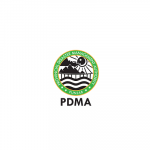Karachi: A team of experts from the Asian Development Bank (ADB) on Saturday inspected the 480-kilometre Karachi–Rohri railway section, a critical part of Pakistan’s long-delayed Main Line-1 (ML-1) upgradation project.
The visit was led by ADB Chief Transport Planner Sangyoon Kim, accompanied by infrastructure specialists and senior officials from Pakistan Railways, including the chief engineer for open lines and divisional superintendents from Karachi and Sukkur.
The inspection aims to assess the feasibility and financing potential of the Karachi–Rohri segment, which falls under the first phase of the ML-1 initiative. According to officials, the ADB team will also meet with Pakistan Railways’ top management and Chinese technical experts involved in the project to discuss the way forward.
Read: Pak-Russia discuss steel mill, regional rail link in economic talks
Considered a key artery in the country’s rail network, the Karachi–Rohri stretch plays a vital role in freight and passenger traffic, particularly for transporting coal from Thar and providing access to strategic mineral reserves such as those in Reko Diq.
Originally proposed in the early 2000s, the ML-1 project has faced repeated delays due to political and financial hurdles. It was integrated into the China-Pakistan Economic Corridor (CPEC) in 2015, but progress remained slow, and China’s willingness to fully finance the project has since diminished due to economic concerns and implementation delays.
Stretching 1,872 kilometres from Karachi to Peshawar, the full ML-1 route connects over 90 stations and handles more than 75% of Pakistan’s rail traffic. If completed, the upgrade would cut travel time in half, increase speeds to 160 km/h, boost freight capacity, and significantly enhance safety standards.
The project was initially estimated at USD 6.8 billion, but the revised cost now stands at approximately USD 6.6 billion due to changes in scope and economic fluctuations.
Read: PKR 250 bn earmarked for high-speed rail between LHR & RWP
With China taking a step back, Pakistan is actively exploring alternative financing options. While ADB has not yet committed to funding, the ongoing site visits and discussions indicate growing interest.
Pakistan Railways officials believe that a well-structured proposal and improved project management could pave the way for partial support from ADB. They emphasize that securing timely funding is essential to prevent further decline in rail infrastructure, especially as derailments in ML-1 sections continue to rise, deterring both freight and passenger usage.







